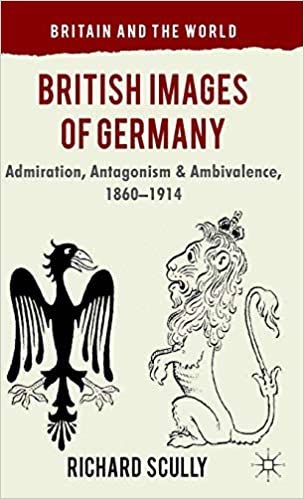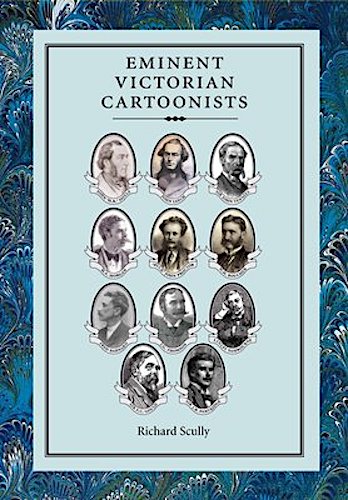
Richard Scully is an Associate Professor in Modern History at the University of New England, Armidale, New South Wales, Australia. He was born in Melbourne and educated at Xavier College (1991-98), where he developed an early passion for History. He went on to Monash University (1999-2003), where he was awarded the Ian Turner Memorial Prize for his BA (Honours) thesis (2003) and the J. D. Legge Prize for the best overall result in fourth-year History (he graduated in 2004). While studying for his PhD (awarded in 2008), Richard worked as a sessional tutor, Associate Lecturer, and Lecturer, in History and International Studies. In 2009 he was appointed Lecturer in Modern European History at the University of New England (UNE), where he pursued his interests in teaching the 1789-2000 period and researching (mainly) the cultural history of Anglo-German relations; the Great War; and the political cartoon. In 2012, Richard was awarded a DECRA (Discovery Early Career Researcher Award) by the Australian Research Council, to explore the global history of political cartoons (funding for 2013-2015 inclusive). In 2014, Richard was Visiting Scholar at the Flinders University of South Australia, and was also accepted as a Visiting Scholar at the University of Cambridge. Between 2018 and 2020, he served as the elected staff representative of the UNE University Council.




Among Richard's major publications are an edition, with Marian Quartly, of Drawing the Line: Using Cartoons as Historical Evidence (Monash University Press, 2009); British Images of Germany: Admiration, Antagonism, & Ambivalence, 1860-1914 (Palgrave Macmillan, 2012); Eminent Victorian Cartoonists (3 Volumes, The Political Cartoon Society, 2018); and Comic Empires: The Imperialism of Cartoons, Caricature and Satirical Art (edited by Scully and Andrekos Varnava, Manchester University Press, 2020).
His numerous articles include "Behind the Lines – Cartoons as Historical Sources," in Agora, Vol. 45, No.2 (2010); "The Lion and the Unicorn: Gladstone and Disraeli Through William Empson's Looking Glass," International Journal of Comic Art, Vol. 15, No.1 (Spring 2013); "Towards a Global History of the Political Cartoon: Challenges and Opportunities," International Journal of Comic Art. Vol. 16, No.1 (2014); "The Foundations of the Anglo-American Tradition of Political Satire and Comic Art: The Eighteenth and Nineteenth Centuries," International Journal of Comic Art, Vol. 17, No. 2 (2015); "Founding a Dynasty and an Art-Form: John Doyle (1797-1868)," International Journal of Comic Art, Vol. 18, No. 2 (2016); "Kaiser Cartoons, 1914-1918: A Transnational Comic Art Genre," in Michael Walsh & Andrekos Varnava (eds), The Great War and the British Empire: Culture and Society (Routledge, 2017); "Britain in the Melbourne Punch: 1855-1901," Visual Culture in Britain, Vol. 20, No. 2 – Special Issue: "Graphic Satire in the Long Nineteenth Century" (July 2019); and "Courting the Colonies: Linley Sambourne of Punch and Imperial Allegory" (with Robert Dingley) in Scully & Varnava (eds), Comic Empires: The Imperialism of Cartoons, Caricature and Satirical Art (2020).
A life member of the Cartoon Museum in London's Little Russell Street, Scully writes: "Raising the profile of the cartoonists of the Victorian Age is really my passion - it has underpinned all my work since my undergraduate years."
Created 20 January 2022